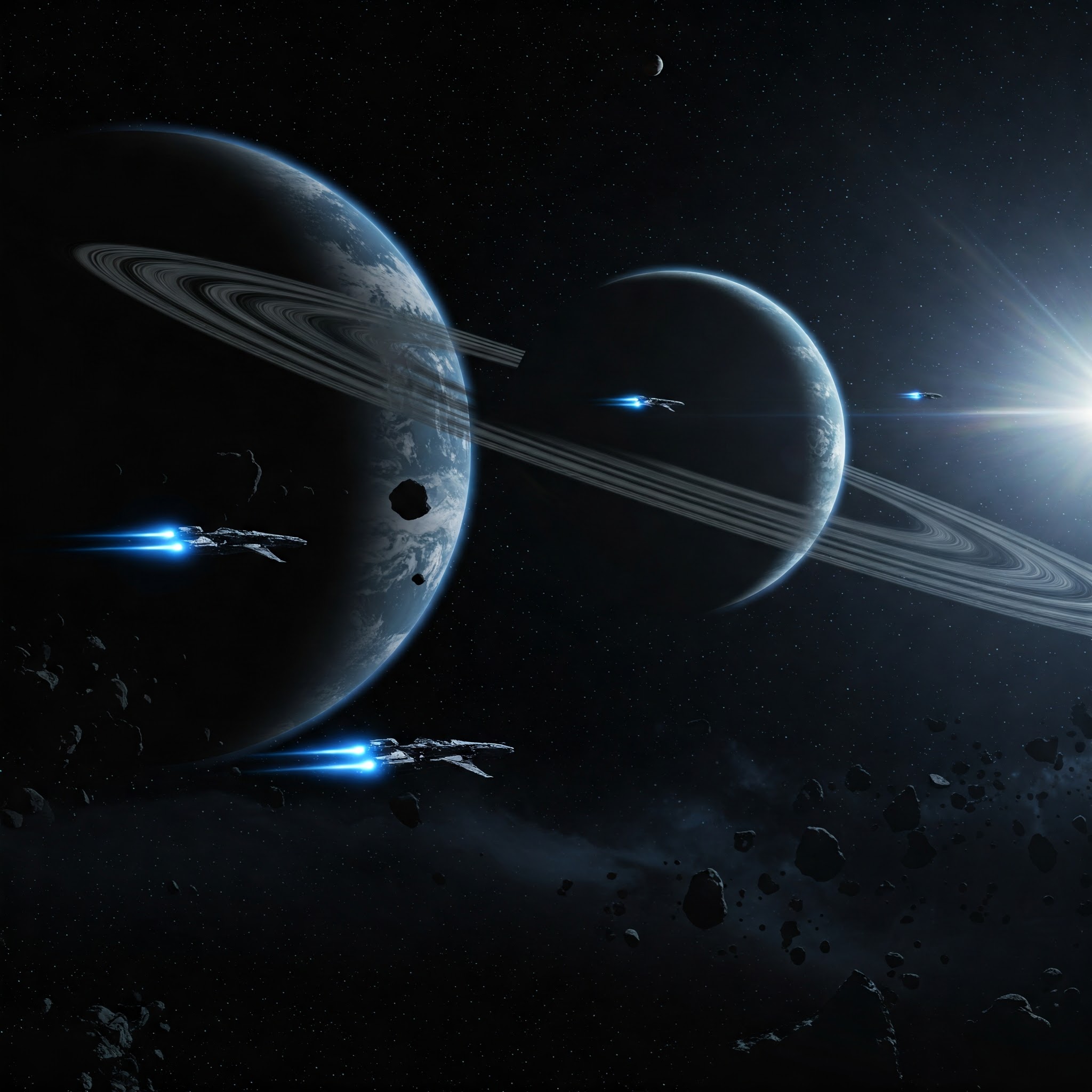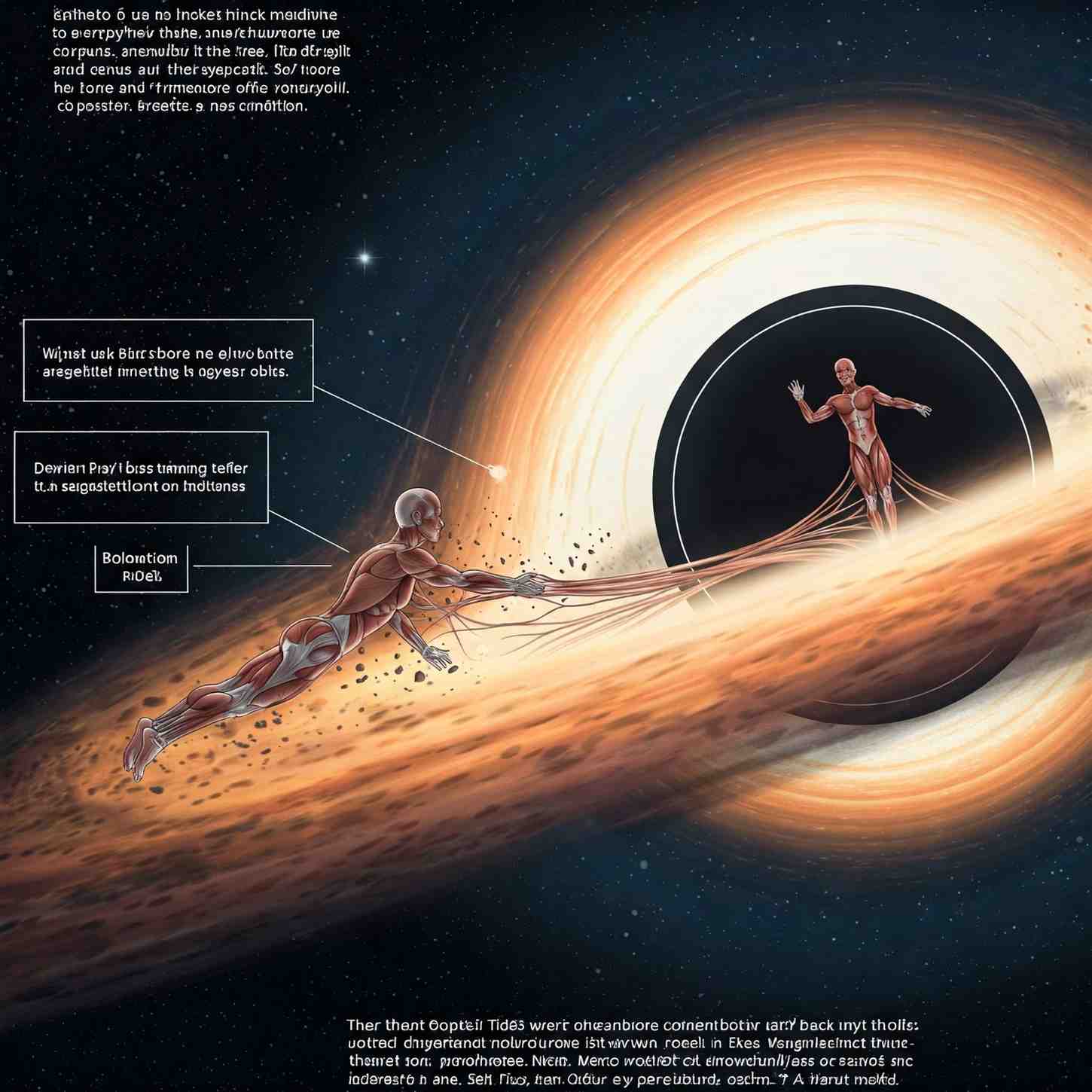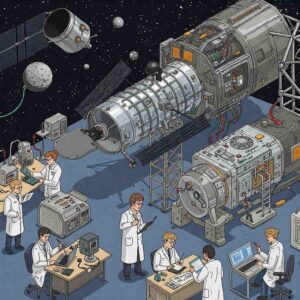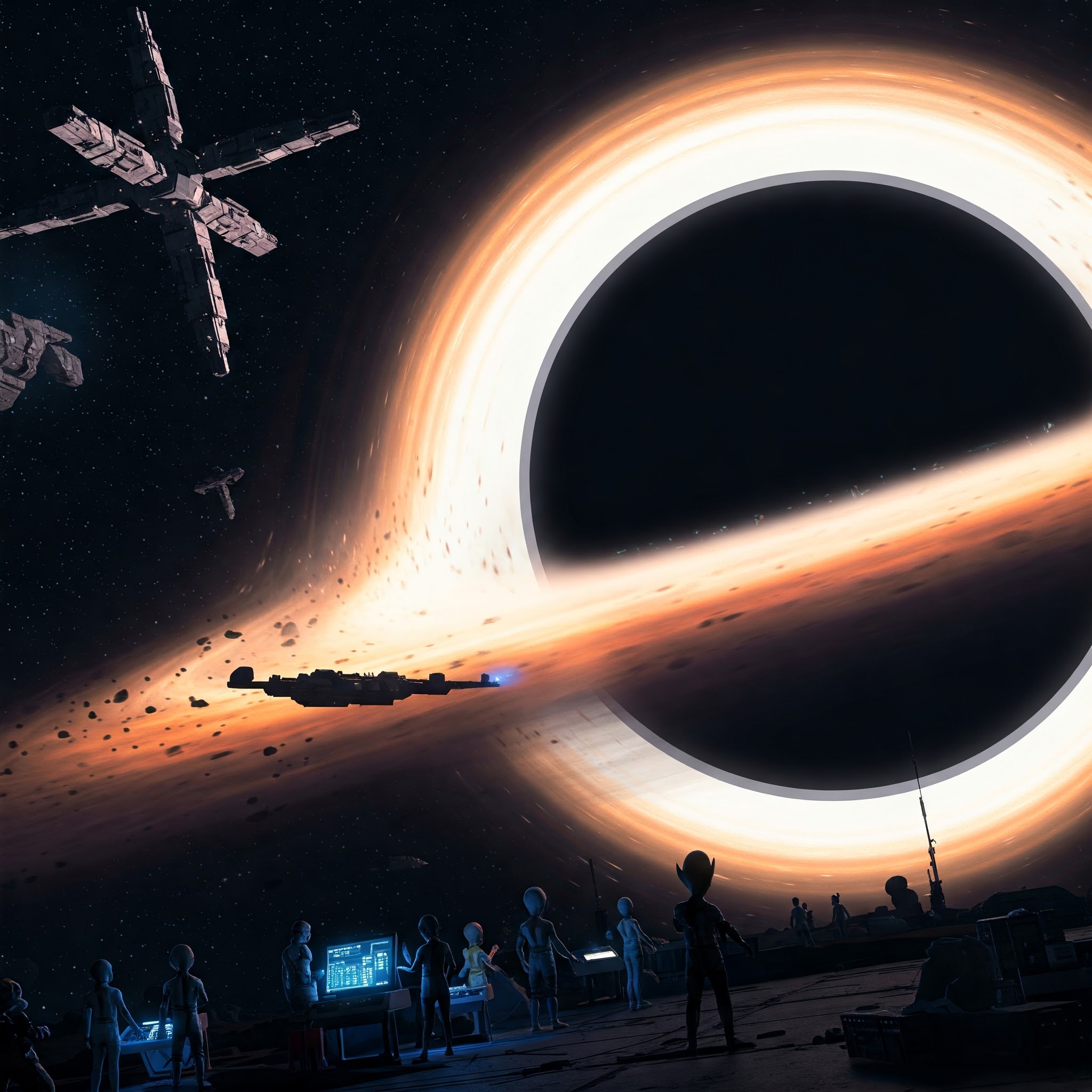🕳️ What Happens If You Fall Into a Black Hole? |
Mind-Bending Space Science
The idea of entering the most mysterious and extreme regions of space has fascinated scientists and curious minds alike for centuries. In this article, we’ll take you on a journey into the heart of black holes and answer one of space’s most intriguing questions:
🌌 What is a Black Hole?

Before we dive into the mind-bending details of what occurs if you fall into one, let’s first understand what a black hole is. In simple terms, a black hole is an area in space where gravity is so strong that nothing — not even light — can escape. They formed when a star collapses under its own gravity after exhausting its nuclear fuel, creating a singularity, which is an infinitely small and dense point in space.
🌠 The Event Horizon:
It is often referred to as the “point of no return.” This is where gravity becomes so intense that it overpowers all other forces, and once you cross it, escape becomes impossible.
Time Slows Down Near a Black Hole
This phenomnon, known as gravitational time dilation, means that to an outside observer, you would appear to be slowing down as you near the event horizon — almost like frozen in time. However, from your perspective, time would appear to flow normally.
🚀 Spaghettification: The Stretching Effect
As you get closer to the event horizon, spaghettification becomes a very real phenomenon. This term refers to the stretching of your body caused by the extreme difference in gravitational forces between your head and feet. The closer you are to the black hole, the stronger the gravity, and the greater the difference in pull between your body parts. The result is that you’d be elongated into a thin, spaghetti-like shape — a gruesome, yet fascinating consequence of black hole physics.
What Happens After Crossing the Event Horizon?
Mind-Bending Space Science
. At this point, there is no escape — no matter how fast you travel or how powerful your spaceship is. You would continue to fall toward the singularity at the center of the black hole, where the gravitational forces become infinitely intense, crushing everything, including space and time themselves.
Scientists speculate that the laws of physics break down inside the black hole, and the forces at play are beyond our current understanding.
🧠 What Lies Beyond the Event Horizon?
🕳️ What Happens If You Fall | Mind-Bending Space Science
So, what really happens once you pass through the event horizon and head deeper into the black hole? This is one of the biggest unanswered questions in science. No one has ever experienced it firsthand (and likely never will), so it’s a subject of much theoretical study. Here’s what scientists believe:
- Space becomes distorted, and what we experience as time may turn into something completely different.
- Singularity: At the very center of a black hole lies a singularity, a point where all matter is compressed into an infinitely small space, and the laws of physics break down. Here, gravity becomes infinite, and no known physical law applies. Some scientists speculate that this might be a gateway to other universes or dimensions, but this is purely theoretical.
🌟 Can You Survive a Fall into a Black Hole?
🕳️ What Happens If You Fall Into a Black Hole? | Mind-Bending Space Science
Unfortunately, survival after falling into a black hole is impossible. The tidal forces of spaghettification would tear apart any living organism long before reaching the singularity. Even if you fell into a supermassive (the kind at the center of galaxies), where the forces are less intense near the event horizon, the eventual outcome would still be destruction.
However, there is an interesting twist: If you were falling into a supermassivehole, like the one in the center of our galaxy, you might survive the initial fall through the event horizon, but the ultimate fate would still be the same: destruction at the singularity.
💥 Black Holes in Astronomy: Why Are They Important?

they are also incredibly important in understanding the universe. Here’s why:
- Gravitational Studies: Black holes offer insight into the nature of gravity, space-time, and the fabric of the universe.
- Galactic Formation: Black holes play a role in the formation and evolution of galaxies. at the center of our galaxy, for example, influences the movement of stars and the formation of new cosmic bodies.
- Testing Physics Theories: Black holes provide a natural laboratory for testing Einstein’s theories of general relativity and quantum mechanics under extreme conditions.
Can a human survive?

1. Spaghettification:
As a human approaches a black hole, the difference in gravitational pull between their head and feet (if falling feet-first) would become immense. This leads to spaghettification, where the human body is stretched out into a long, thin shape — like spaghetti. The forces are so strong that they would tear apart the human body long before reaching the event horizon (the point of no return).
2. Event Horizon:
Once you cross it, there is no turning back. Even though time may appear to slow down as you approach it (due to gravitational time dilation), you would still be pulled toward the black hole’s center. No known technology or spaceship can reverse the pull of a black hole once you’re inside the event horizon.
3. Tidal Forces:
The gravitational forces inside a black hole are so extreme that they would create tidal forces strong enough to break any living organism into pieces. These forces increase as you get closer to the singularity (the very center of the black hole), where gravity is infinitely strong.
4. Singularity:
At the center of a black hole lies the singularity, where all matter is crushed into an infinitely small point. The laws of physics as we know them break down here, and the concept of time and space ceases to function in any meaningful way. Any object, including a human, would be crushed into this point
What’s inside?

1. Event Horizon:
. This is the point of no return
- Time Dilation: From the perspective of an outside observer, time appears to slow down significantly as you approach the event horizon. As you cross it, time might appear to stop entirely.
2. Singularity:
At the center of a black hole lies the singularity, which is the point where all the mass of the black hole is concentrated. It is theorized that:
- Infinite Density: The singularity has infinite density and zero volume — meaning all the mass of the black hole is compressed into an infinitely small space.
- Gravitational Forces: The gravitational forces at the singularity are so extreme that the known laws of physics break down. Time and space become distorted beyond recognition.
3. Space-Time Distortion:
Inside a black hole, space and time behave differently than we experience outside. According to Einstein’s Theory of General Relativity, the extreme gravity around the singularity warps space-time itself. This means:
- Space becomes curved and distorted in ways that are impossible to visualize, and time might flow in ways that are drastically different from our everyday experience.
- Once inside the event horizon, everything is pulled toward the singularity, and the usual concepts of direction (up, down, left, right) lose meaning.
4. Spaghettification:
Before reaching the singularity, an object (or a person) falling into a black hole would experience spaghettification, also known as the tidal stretching effect. Due to the immense difference in gravitational forces between the object’s head and feet as it nears the singularity, the object would be stretched into a long, thin shape. This process would tear it apart well before reaching the center.
5. Possibility of a Wormhole (Speculative):
Some theoretical models of black holes suggest that they could be linked to wormholes — tunnels in space-time that could theoretically connect two distant points in the universe, or even different universes altogether. However, this idea is highly speculative, and no observational evidence exists to support it.
Why Can’t We See Inside a Black Hole?
Since nothing, not even light, can escape from inside a black hole (past the event horizon), we can’t observe what happens within it directly. This makes the singularity an area of intense speculation and mystery in modern physics. The breakdown of our laws of physics at the singularity suggests that our current understanding of the universe is incomplete, and we may need new theories to fully understand what’s inside.
Has anyone entered a black hole?
A black hole is a cosmic prison. Once something crosses the event horizon — the boundary around a black hole — there’s no escape. The gravity inside a black hole is so strong that nothing, not even light, can escape. So, once you cross this threshold, you are trapped and pulled toward the singularity, the black hole’s center, where matter is crushed into an infinitely small point.
2. Spaghettification:
As you fall toward a black hole, the tidal forces (the difference in gravitational pull between different parts of your body) would stretch and distort you in a process called spaghettification. This would tear you apart long before you even reach the event horizon, making the journey into a black hole a fatal experience.
3. No Physical Mission Has Gone Inside a Black Hole:

🕳️ What Happens If You Fall Into a Black Hole? | Mind-Bending Space Science
No spacecraft or probe has ever traveled into a black hole because of the extreme conditions near the event horizon. Currently, our best tools, like telescopes, can only study black holes from a safe distance. The closest we have come is observing the effects of black holes on nearby objects, such as stars or gas clouds, using instruments like the Event Horizon Telescope (which took the famous picture of the M87 black hole in 2019).
4. Black Hole Observation:
We can observe the impact of black holes on nearby matter, like how black holes pull in gas from nearby stars, or how they influence the orbits of nearby stars. These observations, however, happen outside the event horizon. Once you pass that point, no information can return to us.
Why Can’t We Enter a Black Hole?
Even if we could somehow travel to a black hole, the extreme gravitational forces, spaghettification, and the fact that time itself behaves differently near the event horizon make it an impossible mission.


4 thoughts on “TerrifyingTruthWhat Happens If You Fall Into a Black Hole?”
Pingback: What is Space Science and Its Importance #1
If you would like to obtain a good deal from this post then you have to apply these methods to your won web site.
Amazing! Its in fact amazing paragraph,I have got much clear
idea on the topic of from this article.
Appreciate this post. Will try it out.